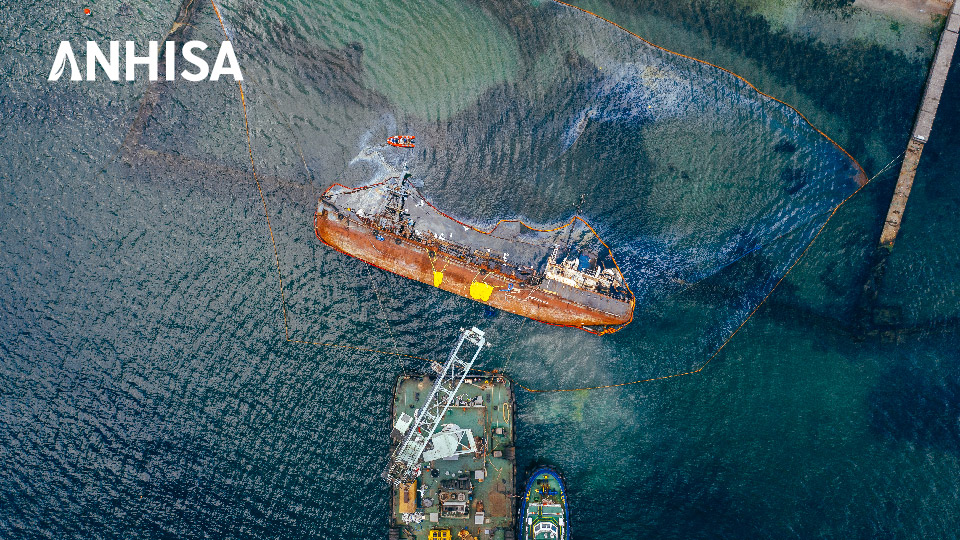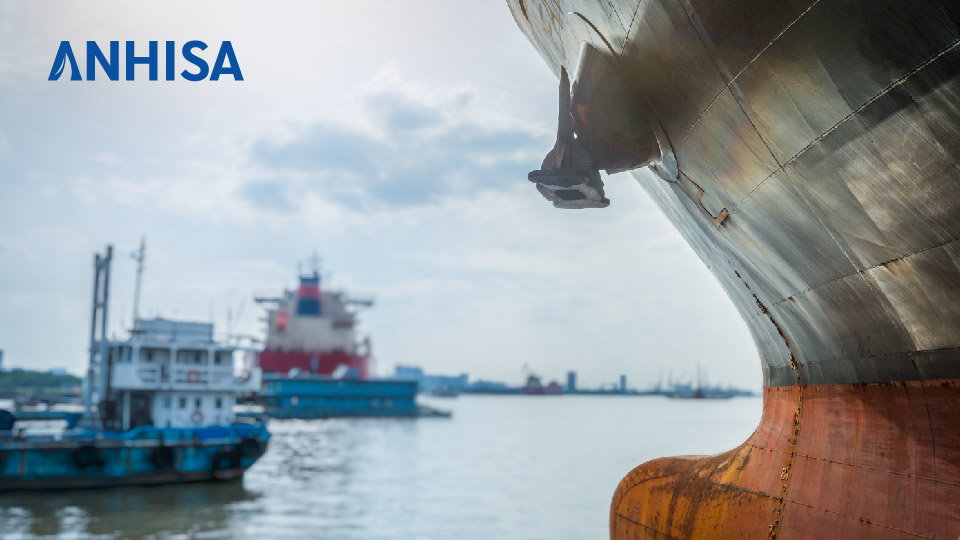Navigating the Complexities of Accidents at Sea: Causes, Consequences, and Legal Framework
August 26, 2023
Accidents at sea are not just about ships colliding or cargo being lost; they encompass a web of risks that can have far-reaching consequences. From piracy and territorial transgressions to oil spills and pollution, the maritime domain is fraught with dangers that demand our attention.
Understanding the causes and implications of these accidents is vital for ensuring safety at sea. It goes beyond protecting ships and crew members; it also involves safeguarding the environment from potential devastation.
Types of Accidents at Sea
Collisions between vessels are a common type of accident that can cause severe damage. These incidents occur when two ships collide with each other, often resulting in significant loss of life and property. The force generated by the impact can lead to devastating consequences, affecting not only the involved vessels but also nearby structures or marine ecosystems.
Loss or destruction of freight during transportation can lead to financial losses for shipping companies. When goods are being transported across the sea, unforeseen circumstances such as storms, accidents, or mishandling may result in the cargo getting damaged or lost. This poses a significant challenge for both shippers and receivers, as it disrupts supply chains and can have a detrimental impact on businesses relying on timely delivery.
Piracy and capture by hostile groups endanger the lives of crew members and disrupt global trade. Maritime piracy continues to be a major concern in certain regions around the world. Armed individuals target vessels, hijacking them for various reasons such as ransom demands or illegal activities. These acts not only put the lives of seafarers at risk but also impede international trade by creating an atmosphere of fear and insecurity.
Explosions at sea pose grave threats to both human life and marine environments. Whether caused by accidents involving hazardous materials or deliberate acts of sabotage, explosions can result in catastrophic consequences. The release of toxic substances into the water can have long-lasting effects on marine ecosystems, affecting aquatic life and polluting vast areas.
Transgressing into territorial waters is another type of accident that can have legal implications and strain diplomatic relations between countries. When a vessel crosses into another nation’s territory without permission, it violates international maritime laws. Such incidents often trigger diplomatic disputes and may require negotiation or legal recourse to resolve.
Oil spills are environmental disasters that occur when large quantities of oil are released into the sea due to accidents involving oil tankers or offshore drilling platforms. These spills have devastating effects on marine life, polluting water bodies and coastal areas. The cleanup efforts are often challenging and require extensive resources to mitigate the ecological damage caused.
Lega Implications under Admiralty Law
Admiralty law, also known as maritime law, plays a crucial role in governing accidents at sea and providing a legal framework for resolving disputes. Understanding the provisions of admiralty law is essential to navigate the complex legal landscape surrounding accidents such as collisions, loss or destruction of freight at sea, piracy, explosion or capture by hostile groups, transgressing into territorial waters, oil spills, salvage, general average, and statutory liability of ship owners for pollution.
Under admiralty jurisdiction, shipowners, crew members, and other parties involved may face legal consequences for negligence or non-compliance with regulations. Here are some key points to consider:
Maritime claims: Admiralty law covers various types of maritime claims arising from accidents at sea. These may include personal injury claims by crew members or passengers, damage to cargo claims by shippers or consignees, pollution-related claims by affected parties due to oil spills or other environmental incidents.
Hull clauses: Shipowners typically obtain hull policies that provide coverage against risks such as collisions and damage to the vessel’s hull. Understanding the terms and conditions of these policies is crucial when dealing with accidents involving ships.
Ship arrest: In cases where there are disputes or unpaid debts related to maritime incidents, ship arrest can be initiated under admiralty law. This legal action allows creditors to seize a vessel until their claim is resolved.
Statutory liability: Ship owners have statutory obligations regarding pollution caused by their vessels. Failure to comply with these regulations can result in significant financial penalties and legal consequences.
Navigating the complexities of shipping law requires an understanding of admiralty law and its implications on both shipowners and other parties involved in maritime incidents. By adhering to the provisions set forth under this legal framework, individuals can ensure compliance while seeking appropriate remedies for any damages incurred at sea.
Please let me know if you need anything else!
Insurance Coverage for Accidents at Sea

Maritime insurance policies provide coverage against various risks associated with accidents at sea. These policies can include protection against collisions, loss of freight, piracy incidents, and pollution liabilities. Adequate insurance coverage is essential for shipping companies to mitigate financial risks arising from accidents.
Marine insurance offers liability coverage for shipowners and insurers.
The coverage includes protection against collisions, which can result in substantial damage to both vessels involved.
Loss or destruction of freight at sea is another risk that can be covered by marine insurance, ensuring compensation for the value of the lost cargo.
Piracy incidents are a significant concern in certain regions, and insurance policies can help cover losses resulting from such events.
Explosion or capture by hostile groups is also a risk that maritime insurance can address, providing financial security to shipowners in case of such unfortunate occurrences.
Transgressing into territorial waters without proper authorization can lead to legal consequences and potential liabilities. Insurance coverage helps protect shipowners from these risks.
Oil spills pose environmental hazards and legal obligations. Marine insurance covers the costs associated with cleaning up oil spills and compensating affected parties.
Salvage operations are often required after accidents at sea. Insurance policies may provide indemnity for salvage expenses incurred during rescue efforts.
General average refers to the practice of allocating losses proportionally among all parties involved in a maritime venture. Insurance coverage can help mitigate the financial impact of general average claims on shipowners.
Statutory liability of ship owners for pollution is an important consideration. Maritime insurance provides coverage for potential liabilities arising from pollution caused by ships.
Understanding the Impact of Accidents at Sea
Accidents at sea can have devastating consequences, ranging from environmental damage to financial loss and even loss of life. We have also discussed legal implications under admiralty law and insurance coverage for such incidents. By understanding the impact of these accidents, you are better equipped to navigate the complex world of maritime operations.
Now that you know more about the potential risks involved in accidents at sea, it’s crucial to take proactive measures to mitigate them. Ensure your vessels are equipped with advanced navigation systems and safety protocols. Stay updated on international regulations and guidelines related to maritime operations. Invest in comprehensive insurance coverage tailored specifically for accidents at sea. Remember, prevention is always better than cureProtecting the environment, and minimizing financial losses.
FAQs
What should I do if my vessel is involved in a collision?
If your vessel is involved in a collision, prioritize the safety of all individuals on board by following emergency procedures such as sounding alarms and initiating evacuation protocols if necessary. Contact relevant authorities immediately to report the incident and provide them with accurate information about the location and extent of damages.
Is piracy still a significant threat in modern times?
While efforts have been made to combat piracy, it remains a significant threat in certain regions around the world. It is essential for ship owners and operators to stay informed about high-risk areas and implement robust security measures such as hiring armed guards or utilizing secure transit corridors.
How can I prevent oil spills from occurring?
To prevent oil spills, strict adherence to proper maintenance procedures is crucial. Regularly inspect equipment and pipelines for signs of wear or corrosion. Implement effective spill response plans that include containment measures like booms and skimmers along with prompt reporting procedures.
What is general average and how does it affect me?
General average refers to a principle in maritime law where all parties involved in a voyage share the losses resulting from deliberate sacrifices made to save the vessel and cargo. It is important to have suitable insurance coverage that includes general average contributions to protect yourself from unexpected financial liabilities.
Are ship owners legally liable for pollution caused by their vessels?
Yes, ship owners are generally held legally liable for pollution caused by their vessels. This liability includes costs associated with cleanup, damage to the environment, and compensation for affected parties. Adequate insurance coverage can help mitigate these potential liabilities.
Readmore:
1. Adopting the Maritime Labor Code 2006 in Vietnam: A Closer Look at Crew Claims and Impacts
2. Charter Parties: The Complete Guide – Types & Agreements
3. Consequences of Defaulting or Disobeying in Arbitration Proceedings
- TEL:
- Hanoi Office: +84 24 320 47609
- Saigon Office: +84 28 5416 5873
- HOTLINE:
- +84 (0) 939 117 398
- +84 (0) 983 488 380





